
Close to 37 percent of young Spanish workers under the age of 25 are unemployed and a growing number of them can’t afford to buy enough food to live. Poor youth with few employable skills struggle the most to find and retain stable employment. Women in Spain face inequality in the workforce. They earn up to 14 percent less than men and represent only 34.5 percent of those listed as the highest earners in Spain.
Salesian missionaries have been working for many years to provide educational and workforce development opportunities for poor youth and women in Spain through residential, technical and vocational training programs.
Since its inception in 2001, the Pinardi Federation has been developing programs to help poor youth between the ages of 12 and 16 and is currently operating close to 40 projects aiding more than 2,000 youth. Projects focus on promoting the quality of children’s lives, helping youth retain employment and supporting migrants through family mediation. Other community projects work to raise awareness of volunteerism.
For its youth employment projects, the Pinardi Federation develops training programs that collaborate directly with the business sector so that students learn marketable skills and make an easier transition from coursework into employment. It encourages the business community to take an active role in program development, as well as meeting with students to help shape standards and students’ academic and social development, ensuring greater opportunities for employment after graduation.
In addition, the Don Bosco Foundation Project, based at the San Isidro Salesian Institute in La Orotava, carries out education and social development programs for young children and older youth, improving their lives and offering them a chance at a brighter future.
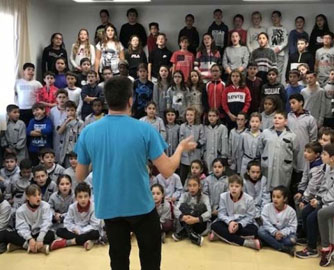
As school began again in Spain during the fall of 2018, 96 Salesian schools welcomed more than 75,000 students. In addition, approximately 17,000 new students started learning a trade in vocational training centers and workshops. These Salesian students are taught by close to 6,000 teachers who are employed at Salesian educational centers across the country.
Salesian centers will continue to promote pedagogical innovation in the classrooms. Several initiatives have been launched including the celebration of an Annual Innovation Day and the opening of an innovation portal to share good practices.
Encouraging and supporting teacher training and networking, Salesian educational centers have planned seminars, courses and other training programs that allow teachers to regularly update their skills and knowledge. In addition, every year, a group of Salesian pastoral directors and coordinators from various Salesian centers have the opportunity to achieve specific university-level training.
One of the initiatives that has become a long-standing tradition within Spanish Salesian schools is the Don Bosco National Award which is celebrating its 32nd edition this year. The event provides an opportunity for Salesian students to present projects from their classes. In addition, Salesian centers will hold a second annual school business coordinators meeting to encourage the cross-sharing of information and better networking among Salesian centers. The goal is to ensure that Salesian centers stay current on economic and business trends in order for program courses to remain relevant to existing markets.
Teachers with Salesian vocational training centers in Spain will have access to additional training thanks to a partnership agreement signed between Father Juan Carlos Pérez Godoy, provincial of the Salesian Province St. James Major, and Dr. Xavier Segura, general director of Festo. An informal training partnership had already been established between the company and Salesian centers in Spain. This formal agreement solidifies Festo’s commitment to the Salesian centers. Festo specializes in automation and industrial development. The company is a global supplier of automated solutions that use pneumatic, electronic and network technology for all types of processes and industrial activities. It supplies individual components and complete systems, as well as technological and commercial consulting and training.
In addition, professors from Salesian vocational training centers in Spain took part in a training course on CNC SINUMERIK, a Siemens automation system for machine tools. The training, which took place from Jan. 8-11, was organized by Don Bosco Tech and Siemens and was held at the Salesian Center of Atocha in Madrid. As a result of the training, seven Salesian centers have been certified in the use of this technology, and Siemens will provide them with a CNC simulation license to be able to train their students.
The training is the result of a partnership established between Salesian centers in Spain and Siemens. Salesian missionaries are committed to fostering vocational training opportunities to ensure youth have access to the skills needed to find and retain employment. Partnerships help provide teachers with the training they need to become more informed educators while giving students access to the most up-to-date training and equipment available in the field.
Salesian centers in Spain operate close to 50 vocational training centers that employ 1,300 teachers and offer 17,000 students a chance to gain an education. In addition to these centers, the Pinardi Federation of Salesian Social Platforms and the Salesian Association of Technology and Innovation offer vocational training courses. All Salesian vocational centers have the support of companies from a variety of business sectors to give students real-world work experience.
An initiative by the Don Bosco Foundation, with the approval of the Andalusian Educational Inspectorate in Spain, offers different forms of schooling without requiring students to attend formal secondary education. Thirteen youth from the city of Cordoba who come from complex backgrounds are attending courses at the Salesian center to enable them to get back into traditional academic education or vocational training and rebuild their lives.
The Spanish education system has the highest school dropout rate in the entire European Union and it does not always find appropriate responses to reverse the decline, according to an article by El País. The first and second chance centers, like the one run by the Don Bosco Foundation, provide very individualized educational models based on the reinforcement of basic skills needed for work. These centers are usually attended by children who are living in poverty, are unable to cope with the hectic pace of the official curriculum and get lost in the large number of students. Even remedial classes are often not enough to help them cope. In order to share experiences and to become centers with a recognized model for quality training, the National Association of Second Chance Schools emerged in 2016.
Many of the students who attend these centers are not able to pay attention in the classroom because they have a lot of family disruption at home. Others do not have the necessary language skills. Still others live in such poverty that they do not have enough to eat and do not get enough sleep in order to be prepared and focus on their school lessons.
In response to the migration and refugee crisis that has hit the European Union over the last several years, Salesian missionaries are creating new spaces and providing services to welcome refugees. The new spaces provide a place for refugees to live while new services have been created specifically to help refugees integrate into their new communities.
According to UNHCR (UN Refugee Agency), more than 1 million refugees live in the European Union today. In 2017, Barcelona welcomed 4,405 refugees, according to data from the Immigrants, Emigrants and Refugees Service of the Barcelona Municipal Council. Many of them have lived or still live in spaces granted by the Catholic Church.
The Salesian Martí-Codolar residence, a program within the broader Salesian Martí-Codolar Center in Barcelona, serves as a place of first arrival for refugees and migrants. Two years ago, the local Salesian congregation appointed two floors of the Martí-Codolar residence and dedicated them specifically to welcoming refugees who arrived in the city.
In addition to ceding the space, the Salesian congregation made some necessary improvements including the installation of laundry facilities. Salesians missionaries, together with volunteers, spent time making the facility accessible and appropriate to meet the needs of new arrivals.
Most of the people who arrive at the Martí-Codolar residence are families with children. However, there are also young people who arrive alone. There is much turn over at the residence as its primary purpose is to act as an emergency shelter for those refugees who have most recently arrived and who have not yet been integrated into other programs.
A collaboration of six Salesian institutions, all members of the State Coordination of the Salesian Social Platforms in Spain, implemented the Empodera-T project aimed at empowering women in vulnerable circumstances and poverty. The project provided socio-educational and workforce development services for women to help them gain employable skills and find broader opportunities in the workforce.
Started in October 2014 and continuing to September 2015, the project was financially supported by the Spanish Institute for Women through the European Economic Area under a memorandum of understanding signed by representatives from Norway, Iceland, Liechtenstein and Spain. Salesian missionaries worked across six Salesian institutions—Salesians of Saint Jordi, the Pinardi Federation of Social Platforms, the Valsé Foundation, the Valponasca Association, Collectiu Popular and the Mornese Foundation.
For close to 15 years, the State Coordination of the Salesian Social Platforms, through its member institutions, has been developing women empowerment and workforce development programs aimed specifically at women in vulnerable situations. In many instances, the women who participate in the programs are immigrants with little means of finding and retaining employment in their new country. Salesian missionaries are currently operating 19 programs in 10 Spanish provinces aimed at helping women break the cycle of poverty. These programs, supported by more than 130 professionals and volunteers, have helped 1,168 women gain new skills and find employment.
Given the high rates of employment in Spain and the influx of refugees and migrants, technical and vocational training is helping to pull youth back from homelessness and despair. The Don Bosco Foundation Project in Córdoba, a city in the southern Spanish region of Andalusia, is helping youth gain the skills needed for stable employment. The project helps by building connections between employers in need of a new skilled workforce and the youth who need employment. One of the ways Spain is addressing this ongoing issue is by developing networks of youth programs, employers and state organizations.
One of the networks established is the Incorpora Program promoted by the La Caixa Bank. Salesian missionaries and staff with the Don Bosco Foundation Project have joined this network of providers and are working in partnership with Spain’s Center for the Bata Cooperation Initiatives, the Association of Teachers, the Association for the Protection of Children and Adolescents, and the Red Cross of Córdoba. These five organizations are working together to manage and facilitate the Incorpora Program. They also have the involvement of 78 local companies that have joined this program to help put youth to work.
In operation since 2006, the Incorpora Program is aimed at the most vulnerable groups of society including young people at risk of exclusion, people with disabilities and those who have faced long-term unemployment as well as ex-convicts, immigrants and victims of gender violence. The Incorpora Program specializes in developing training programs that collaborate directly with the business sector so that students learn marketable skills and make an easier transition from coursework into employment. It encourages the business community to take an active role in program development as well as meeting with the students to help shape standards and the students’ academic and social development, ensuring greater opportunities for employment after graduation.
Salesian missionaries launched an initiative to help vulnerable young refugees. A new program has been developed in Madrid and Seville by the Pinardi Federation of Salesian Social Platforms and the Don Bosco Foundation. The program, which has been funded by the Ministry of Employment and Social Security through the Asylum, Migration and Integration Fund, is aimed at assisting young refugees between the ages of 18 and 26.
By the end of 2018, the Salesian program assisted an estimated 40 young people across five shelters. The first 14 young refugees are currently transferring into homes. In Seville, there is an apartment that already houses four minors from Guinea Conakry, Guinea Bissau and Syria. In Madrid, 10 young people from countries such as Afghanistan and Syria will live in two apartments donated by the Daughters of Charity.
The new program provides a complete service team of seven people who will take care of all the needs of the young refugees, helping them to integrate into their new community. The program provides shelter, nutrition, and education and skills training, as well as other wrap-around services the youth might need as they settle into their new homes.
Salesian centers across Spain serve more than 25,000 migrants and refugees through 40 projects and with the help of 60 professionals and 200 volunteers. Salesian missionaries and their network of programs across Europe are assisting European countries with the ongoing refugee crisis. Salesian programs provide humanitarian and educational assistance to refugees by helping them become fully-integrated and independent within their new countries and homes.
Close to 18,000 young children and older youth benefit from Salesian summer camps. These events are organized by 2,500 leaders and 350 Salesian missionaries in Madrid and the surrounding areas. Salesian missionaries, through youth centers in Spain and around the globe, offer educational and recreational activities that keep youth engaged and focused on learning. The camps are also open to and focused on youth most in need. Many attend schools and programs run by Salesian missionaries year-round.
While other educational institutions close for the summer, the Salesian centers organize activities for youth who might not have another chance at a fun and active summer holiday. These activities would not be possible without the many leaders engaged in setting up and facilitating the activities. For many leaders, this is real chance to gain some hands-on volunteer experience.
The summer training camps bring together youth from many different faiths, and it is an opportunity for them to learn from one another. Traditionally the summer camps are held in places around the country with a special natural environment. In some cases, Salesian missionaries opt for outdoor camping and sometimes the youth are accommodated in country houses. Leisure and games are combined with times of prayer and reflection, always in a friendly atmosphere. In more urban areas, activities are held on the Salesian grounds and are aimed at the general public, especially for young families who cannot travel away from their homes. Traditional recreation activities, sports and education programs are typically offered.
In addition, Salesian Missions Madrid and the Real Madrid Foundation have joined forces in projects for disadvantaged children and youth for several years. The program’s motto is “They play, we educate” and participants receive nutritional, family and psychological support, regular health checkups and the opportunity to participate in social and educational workshops in activities such as gymnastics, crafts, reading and citizenship. Training sessions on topics such as health, hygiene, values and the prevention of alcohol, tobacco and drug abuse are also be provided.
Outside of normal school hours, participants in the program receive sports training by coaches specifically qualified by the Real Madrid Foundation.
The collaboration between the Salesians and the Real Madrid Foundation has been very successful, granting more than 2,000 youth and vulnerable children the opportunity to participate in similar programs around the globe. Currently there are 17 socio-sports schools across 12 countries on three continents.
Launched in 2014, the Pinardi Federation and Kyocera Document Solutions España SA, have come together in a collaboration to feed youth in Spain’s capital city, Madrid. Thanks to this program, more than 50 youth who are participating in socio-educational programs at a Salesian Center in Parla, Madrid are receiving a free afternoon meal.
For Kyocera, the initiative is part of a corporate social responsibility plan that aims to make employees aware of the needs of children while encouraging them to offer their support. One of many projects Kyocera has worked on with the Pinardi Federation, this project has more than 10 Kyocera staff volunteering to collect donated food from company employees and then deliver it to Parla’s Salesian Center each month.
The afternoon meal offered to each child helps to combat the rampant poverty that has affected so many families in Madrid. For some, this is the only balanced meal they receive each day and the hope is that it will give them the energy they need for study and play. The project also aims to educate young people on the importance of nutrition and a balanced healthy diet.
In the weeks starting the new year, many Salesian programs in Madrid and across Spain launched fundraising campaigns to help others in need. The majority of these solidarity campaigns are traditional yearly events in Salesian houses. These events always encourage hope, help to set new goals and persevere in the mission of caring for youth in need, as well as their families. In collaboration with Caritas, tons of non-perishable food and hygiene products have been collected in many Salesian houses through schools, youth ministry centers and parishes.
The “Kilo Solidario” campaign was promoted across the country with each program adopting its own specific campaign motto. For example, “Open the door of solidarity” was the motto of the Salesian house in Cadiz, which collected 8,000 kilos of food. The Puerto Bosco Youth Center chose “Sowers of Stars” as its motto and collected donations for the poorest of families in Puertollano.
Other campaigns targeted collecting goods for specific populations and causes. The “Food for Africa” campaign was carried out by Salesian houses in the homes of Deusto, Logroño, Pamplona, Azkoitia, Donostia and Rentería and benefited programs providing youth in need in Sierra Leone. More than 8,000 kilos of non-perishable items were collected.
In the Salesian centers of Andalusia and Extremadura, the “Potito Solidario” campaign collected products for children, especially for newborns and babies. There was also the “Space for Art” campaigns with projects carried out in the youth centers of Castile and León. In addition, thanks to festivals held in León, Valladolid, Villamuriel and Zamora, youth were able to express their commitment to a better world in an artistic way and organize a food tasting of fair-trade products to raise people’s awareness toward poverty and inequality.
In 2016, Students at the Salesian Intermediate School in Elche, a town located in the region of Baix Vinalopó, Spain, held a workshop to restore bicycles for youth in need. The project was named “Bicycle Solidarity 5.0” and was facilitated by Dr. Pedro Moreno who teaches fundamental education in vehicle maintenance at the Salesian school.
He is responsible for the coordination of this project, which enables a group of children and older youth without resources to receive donated bicycles that are in good condition. The first step of the project was to facilitate a campaign to collect used and broken bicycles from local area residents. The school advertised the project through its networks with the support of the community.
The bikes are then delivered by the students to people who may need them, mostly children and young people. In recent years, the project has delivered more than 160 bicycles to other community programs like the Red Cross, nursing homes in Elche, shelters, orphanages and schools.
In addition, the Salesian publishing house, Edebé Group, located in Barcelona and Google for Education have reached a collaboration agreement for the production and distribution of digital educational products for adaptive learning in schools through the use of artificial intelligence and data analysis, otherwise known as Big Data.
The use of artificial intelligence in school will offer students personalized learning, adapted to their needs, with the content and materials they need at all times. Reaching the maximum potential of each student, according to his or her abilities, will be the objective. The technology will provide educators with a virtual assistant that will facilitate the individualized planning for each student and will be able to detect and solve the challenges of the learning process.
As a result of this agreement, the first products will be made available during the 2019-2020 school year. The collaboration between the two companies aims to drive digital transformation by combining Google’s digital tools and Edebé’s digital educational products and content. These new products integrate with the Google for Education ecosystem consisting of the “G Suite for Education” collaboration and communication platform and Chromebook devices.
The agreement will also allow the latest findings of artificial intelligence and adaptive learning based on Big Data to be within reach of the educational community and they will be able to respond to its great challenges.
From Spain

From Spain
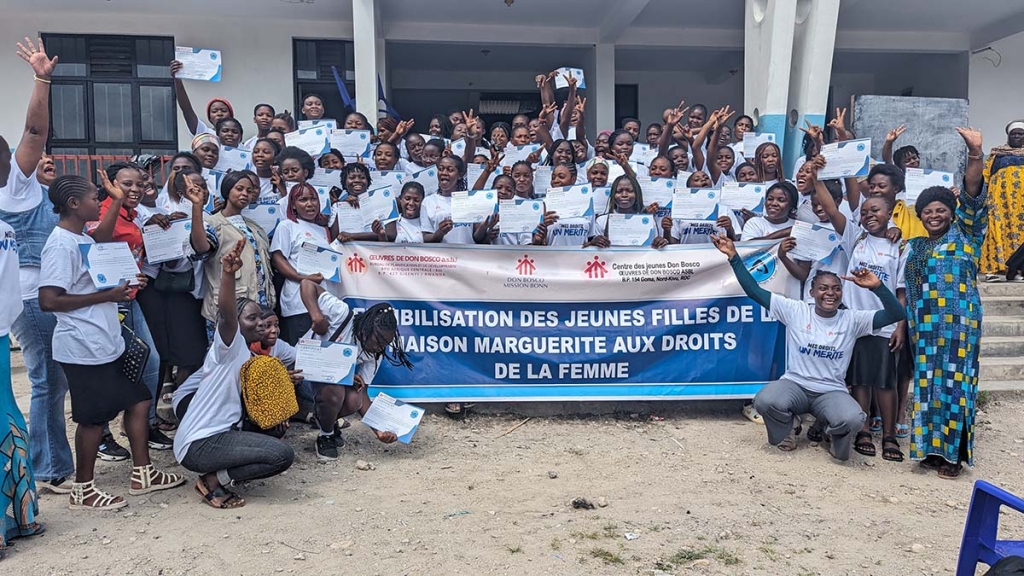
Salesians around the globe work to ensure that all youth know their rights. NEW ROCHELLE, NY (Dec. 10, 2024) Salesian Missions, the U.S. development arm of the Salesians of Don Bosco, joins humanitarian organizations and the inter
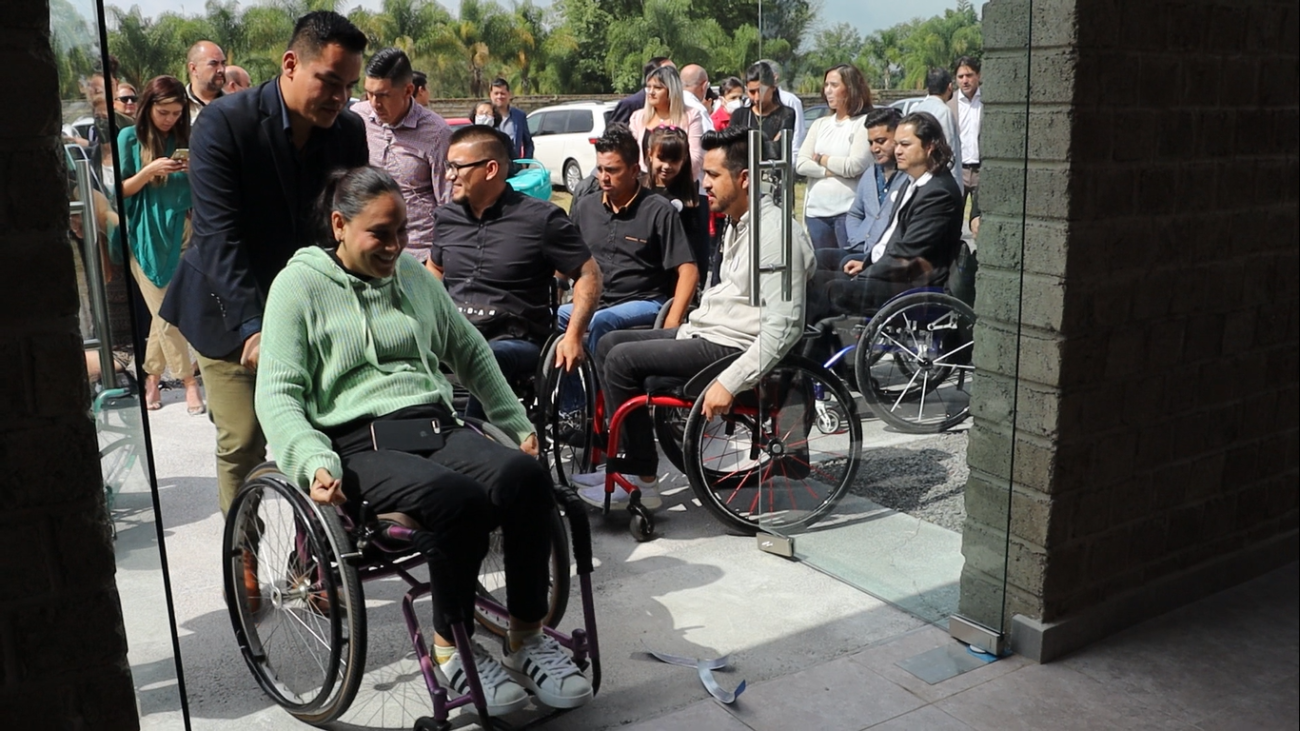
Nearly 1 billion people around the globe are living with a disability. NEW ROCHELLE, NY (Dec. 3, 2024) Salesian Missions, the U.S. development arm of the Salesians of Don Bosco, joins humanitarian organizations and countries aroun
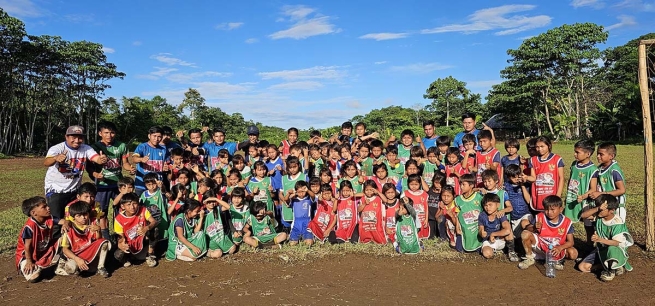
Salesian missionaries provide sports programming in schools and youth centers. NEW ROCHELLE, NY (April 6, 2024) Salesian Missions, the U.S. development arm of the Salesians of Don Bosco, joins humanitarian organizations and the in
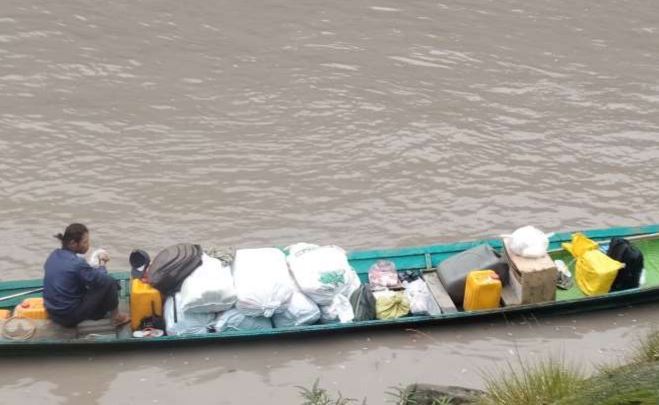
Pope marks day by calling for spiritual and physical closeness to all those who are ill. NEW ROCHELLE, NY (Feb. 11, 2024) Salesian Missions, the U.S. development arm of the Salesians of Don Bosco, joins Catholic organizations arou
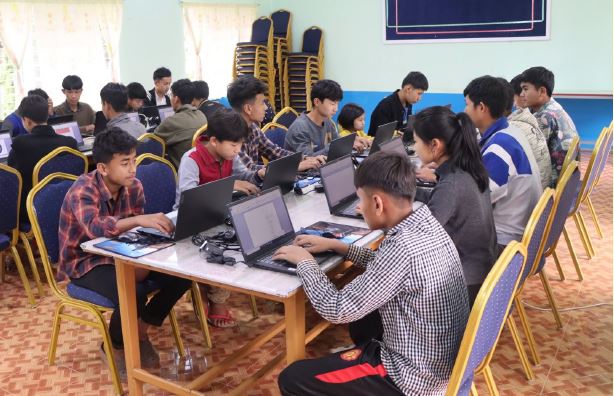
Pope Francis focuses his message for the day on theme ‘Artificial Intelligence and Peace’. NEW ROCHELLE, NY (Jan. 1, 2024) Salesian Missions, the U.S. development arm of the Salesians of Don Bosco, joins Catholic organizations
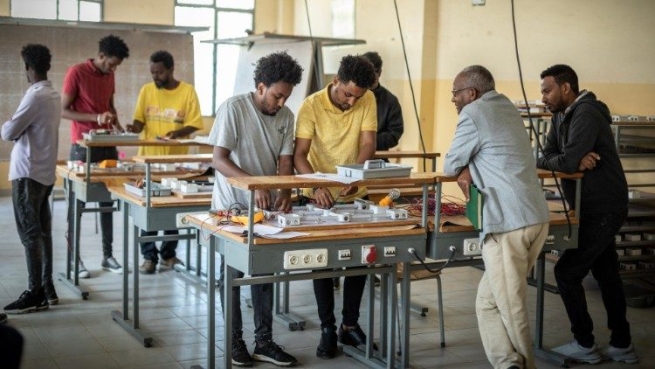
Programs provide educational services to young migrants. NEW ROCHELLE, NY (Dec. 18, 2023) Top of Form Salesian Missions, the U.S. development arm of the Salesians of Don Bosco, joins humanitarian organizations and the internationa
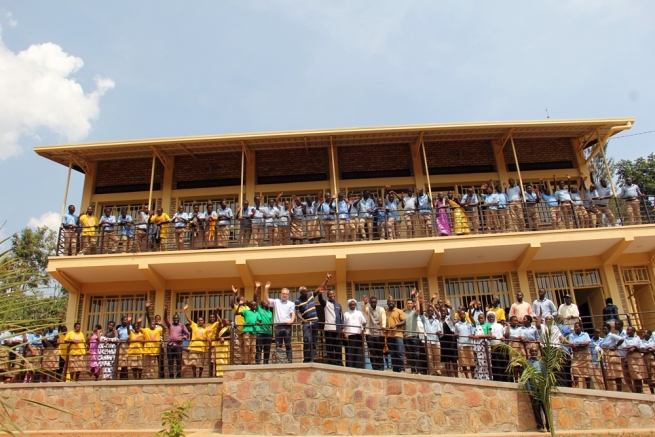
Projects help teachers provide high-quality education. NEW ROCHELLE, NY (Oct. 5, 2023) Salesian Missions, the U.S. development arm of the Salesians of Don Bosco, joins humanitarian organizations and countries around the globe in h
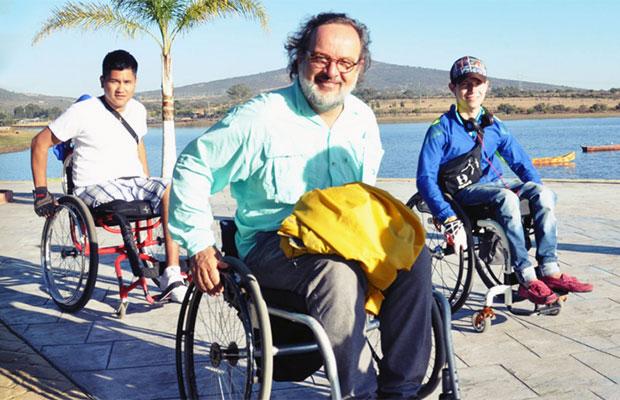
Almost 1 billion people living with a disability, according to the World Health Organization. NEW ROCHELLE, NY (Dec. 3, 2022) Salesian Missions, the U.S. development arm of the Salesians of Don Bosco, joins humanitarian organizati
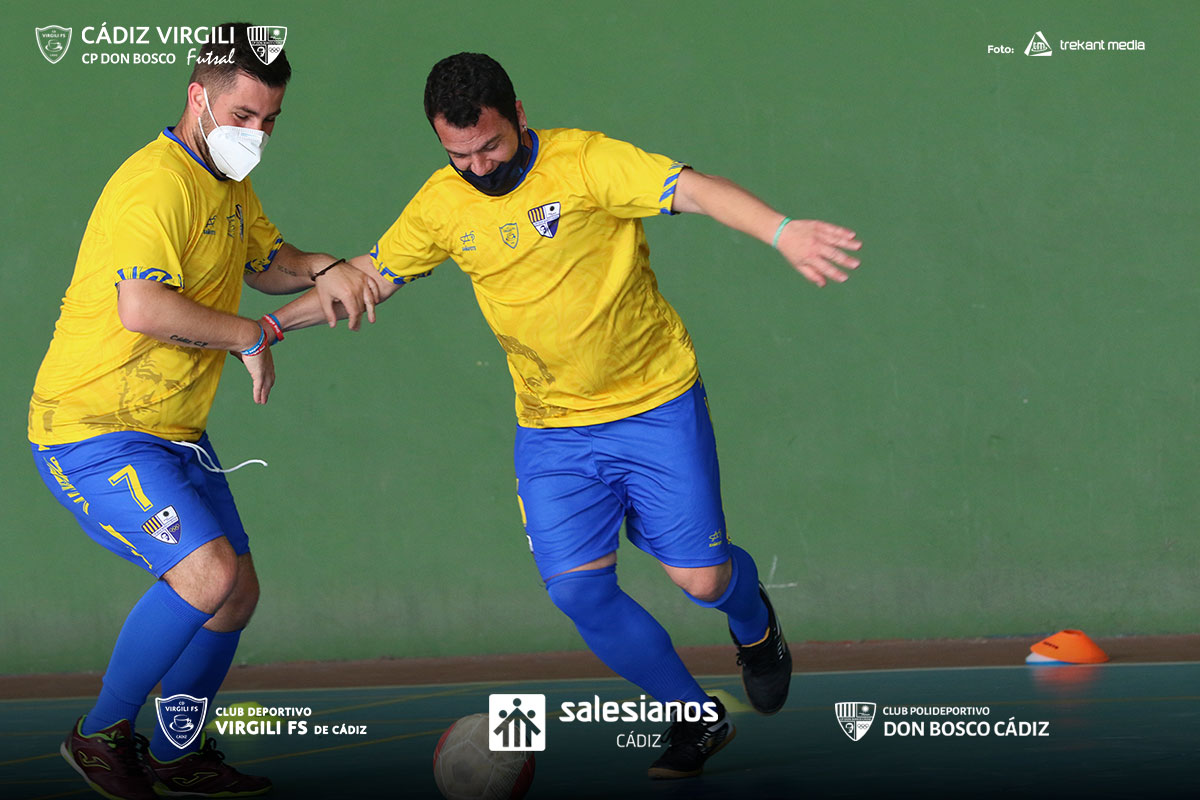
This year’s theme is ‘Fighting for rights in the post-COVID era’. NEW ROCHELLE, NY (Dec. 3, 2021) Salesian Missions, the U.S. development arm of the Salesians of Don Bosco, joins humanitarian organizations and countries arou
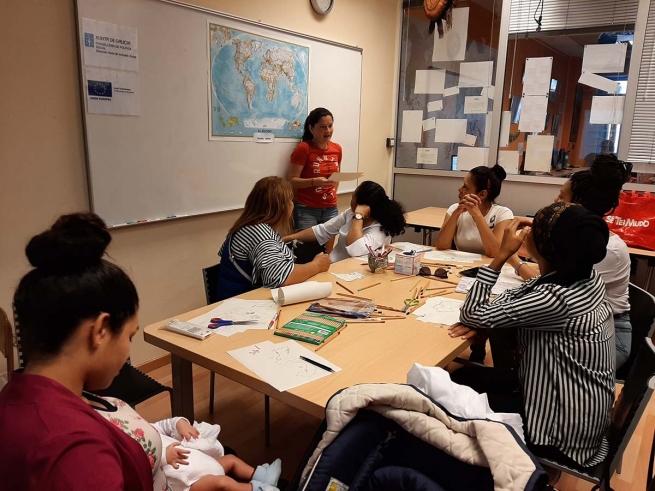
In honor of International Migrants Day, Salesian Missions highlights programs that assist migrants and their families. NEW ROCHELLE, NY (Dec. 18, 2020) Salesian Missions, the U.S. development arm of the Salesians of Don Bosco, joi
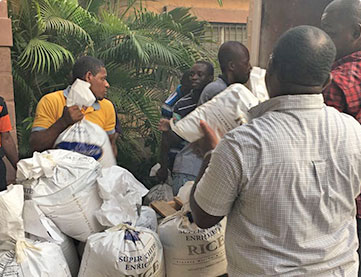
Salesian Missions includes agriculture in its vocational training programs – to ensure that youth of Rwanda learn better agricultural practices as well as keep the school self-sustaining in the face of the country’s food shortages.
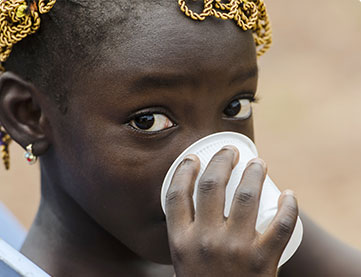
Salesian Missions includes agriculture in its vocational training programs – to ensure that youth of Rwanda learn better agricultural practices as well as keep the school self-sustaining in the face of the country’s food shortages.
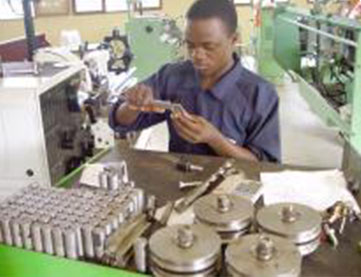
Salesian Missions includes agriculture in its vocational training programs – to ensure that youth of Rwanda learn better agricultural practices as well as keep the school self-sustaining in the face of the country’s food shortages.